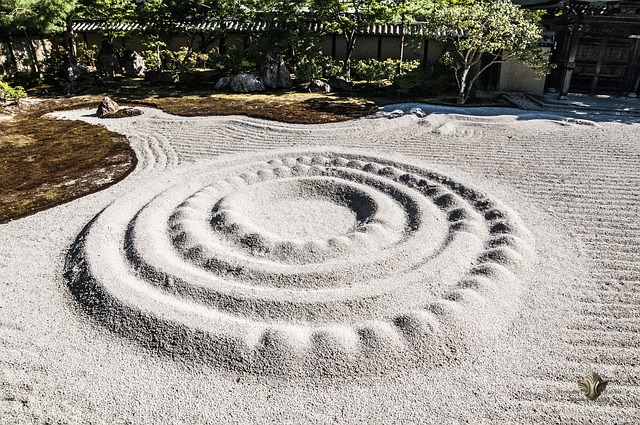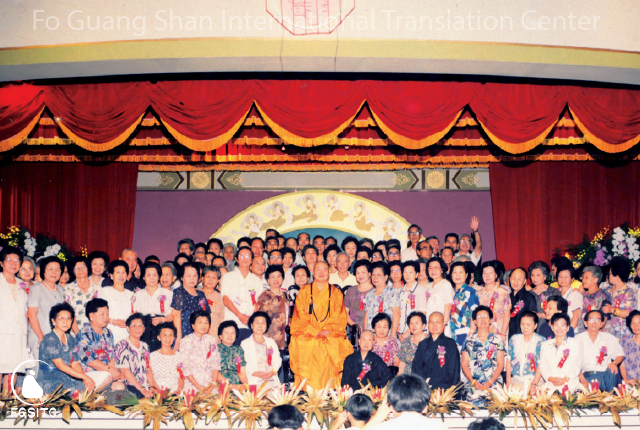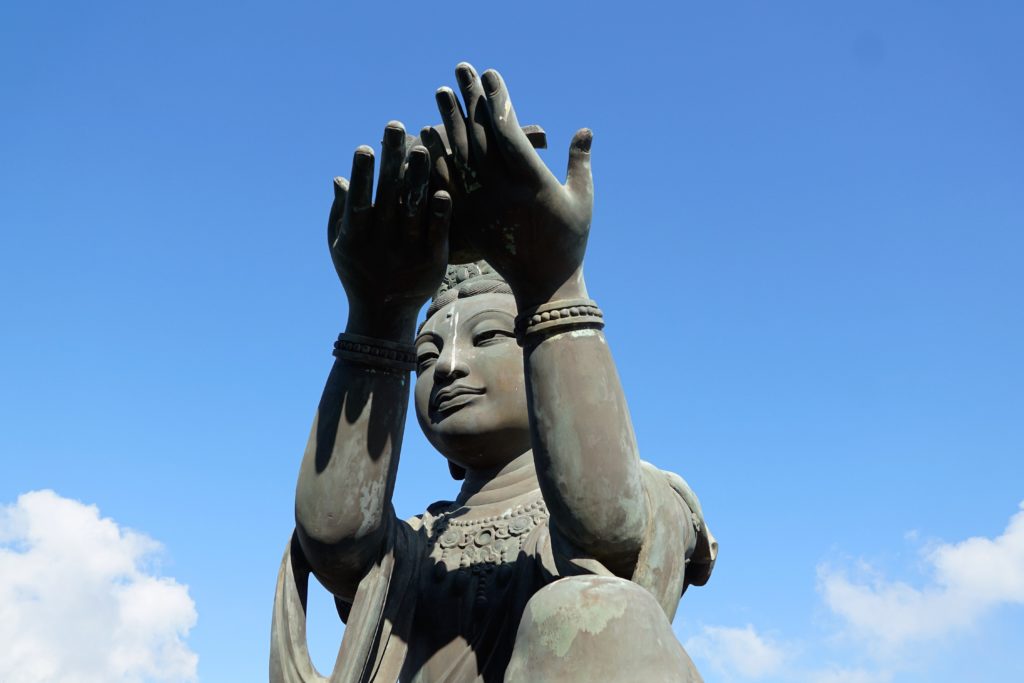What are people supposed to do when they are troubled by afflictions? Some people are troubled by very specific things, others encounter poverty, and many have poor relations with other people. Some individuals are disturbed the moment they hear even the slightest comment they do not like, or they become angry when they see someone doing something they do not approve of. This sort of reaction is actually cheating the person who feels it.
Someone else has said something, but I am the one who gets angry. Someone else has acted wrongly, but I am the one who loses my appetite. Someone else looks at me a certain way, but I am the one who loses sleep over it. If we allow ourselves to be so easily affected or unsettled by others, it means we lack resolve and resilience.
A lot of people today lack inner strength and are unable to withstand even a single comment they do not like. Yet, anything that is worthwhile, including ourselves, must endure. The afflictions are a similar kind of test. If we totally crumble in the face of affliction, we will never know true peace of mind or have a restful home.
The Treasury of Abhidharma Treatise says: “When the obstructions of the afflictions are serious, further karmic obstructions may be generated, and these karmic obstructions may further generate more obstructions of different kinds—this process is based upon the first affliction, which is its root.”
When afflictions arise, you must face them and dissolve them. If you try to avoid them by hiding, it will be of little help.
We cannot hide from our afflictions; the only way that we can claim victory over them is to drive them out of our bodies and minds. So, where do afflictions come from? Afflictions are a form of ignorance; they stem from not being able to reason correctly. When they arise, it is as if a bad person has just arrived, for all of our good friends will quickly depart.
Afflictions ruin our peace of mind. They are like storms and disasters. Sometimes, they arise from our external environment, such as instances of being unable to bear the words or actions of others. At times, they arise internally, such as when suspicion, jealousy, or narrow-mindedness takes over. It is said that, “Fundamentally, there are no problems in the world, for they all arise from our own worries.” We make most of our afflictions.
We must each have the strength to transform our afflictions and turn them into enlightenment. On occasion, we speak without thinking and are criticized by others, and this can be a source of affliction.
Another kinds of afflictions arise when we are unhappy because others rebuke us for our own misdeeds. All too often, we become troubled due to other people, events, or the things someone says. However, if we change our thinking and accept criticism as an opportunity to learn, then the comments of others will no longer become afflictions. We must rely on ourselves to dissolve them because the advice and counsel of others is only momentary. Unless we can eradicate the roots of our afflictions, there cannot be a good outcome.
How can we overcome our afflictions? Here are a few ideas:
1. When with others, do not compare yourself to them or be petty. Many afflictions stem from pettiness or unfavorable comparisons. If we do not compare or judge, then we will have fewer afflictions.
2. When afflictions arise because we feel someone is doing better than us, just wish them well. If someone you know buys a large house but you do not have enough money to buy your own home, so what? You can keep out of the rain by standing under the eaves of that person’s building, so his or her good fortune may also do you some good. For the many things we may encounter in this world, as long as you can keep an open mind and accept them as they are without grudge or envy, you will be free of afflictions.
3. It is best not to cling to things or insist that they turn out a certain way. Do not expect others to do things as we wish. People all have their own personalities and freedom to act as they want, so if we get upset because others do not comply with our wishes, then afflictions will incur because our mental state is vulnerable, obscured, and ignorant.
4. It is best to spend our time engaged in wholesome interests, work, and hobbies because they can fend off innumerable onslaughts from the demons of our own indulgent behavior. The most important thing is to work hard at your job since if you are busy, you simply will not have the time to cause yourself many problems. It is also important to spend time with wise and good friends and to avoid people who cause problems, for if we try to drown our troubles with alcohol while in the company of unsavory people, we will only make matters worse.
5. We must constantly reflect on ourselves and be willing to say: “I am not doing enough; I am not good enough.” The Way to Buddhahood says: “Be ashamed of what you do not know and of what you are not able to do. Be ashamed of your impurities and enter upon the Mahayana path.” If we only think about how good we are and are forever willing to forgive ourselves, we are likely to say: “That’s just how I see things. It’s the way I 18 am!” This sort of thinking keeps us from improving and ridding ourselves of afflictions.
6. Be attentive to others, do good deeds, speak good words, and have good thoughts. If we can keep these three benevolent acts in mind, we will have far fewer afflictions. When you perform good deeds, speak good words, and have good thoughts, other people will praise and respect you. Of course, you will be free from afflictions.
Beyond these points, having afflictions is inevitably due to our own mistakes, so we must face them with courage and be willing to admit fault and make amends. A person with an illness must first admit he or she is sick in order to be treated. The most useful thing about religion is that it helps us to overcome ignorance and reduces our afflictions.
The Buddhist tradition is replete with a vast range of teachings, but no matter how numerous or effective they are, if we fail to learn and apply them, we are like fighters who refuse to train. Even if a fighter is equipped with the best weapons, if he does not learn to use them, not only will he not be able to defeat the enemy, he will be beaten. For these reasons, we must use the tools of right mindfulness and right thought to conduct ourselves and deal with issues that arise. With right mindfulness, we can overcome the sources of delusion that produce afflictions.
It is said that,
“The Dharma can be understood in infinite ways, but best way is with purity as the foundation.”
If we understand how to purify our minds, afflictions will have no source from which to rise.
From Buddhism and Healing, written by Venerable Master Hsing Yun.
Image from Pixabay.













